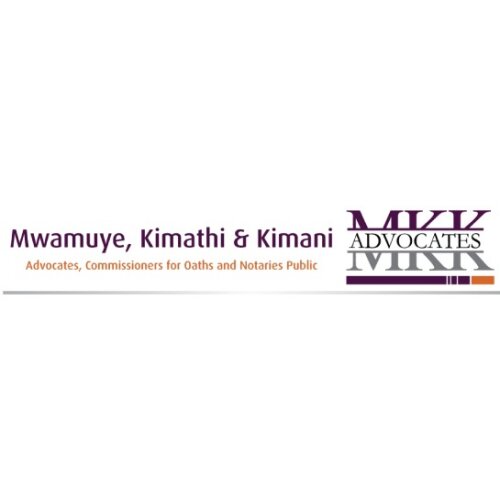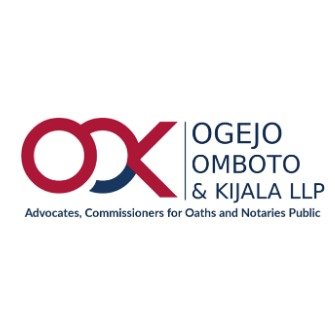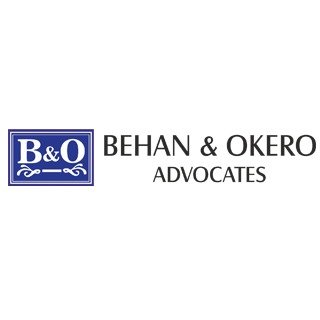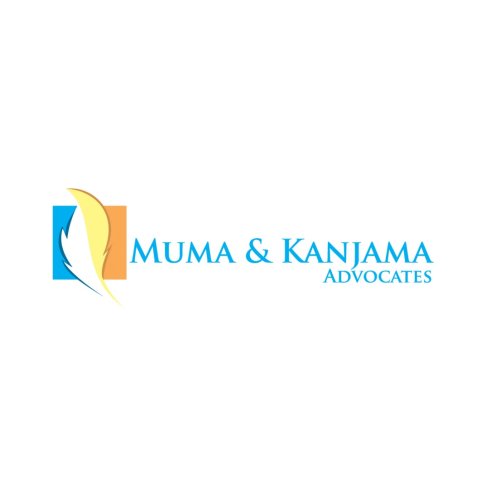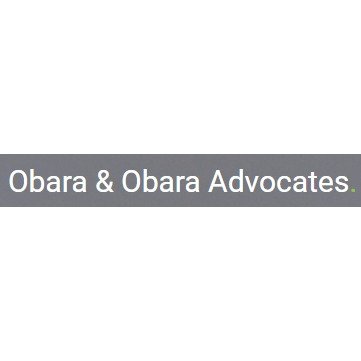Best Sanctions & Export Controls Lawyers in Kisumu
Share your needs with us, get contacted by law firms.
Free. Takes 2 min.
List of the best lawyers in Kisumu, Kenya
About Sanctions & Export Controls Law in Kisumu, Kenya
Sanctions and export controls are legal measures implemented by governments to regulate the movement of goods, technology, and services across international and domestic borders. In Kisumu, Kenya, these laws help enforce international obligations, safeguard national security, and support economic policies. They determine which products or services can be imported, exported, or transferred, and under what conditions. For both individuals and businesses operating in Kisumu, understanding these laws is essential for compliance and risk management.
Why You May Need a Lawyer
Legal advice is crucial when dealing with sanctions and export controls in Kisumu. Common scenarios where a lawyer’s assistance is valuable include:
- When your business plans to export or import controlled goods or technologies
- If your company is facing investigations or penalties for possible violations
- When drafting or reviewing contracts involving cross-border trade
- If you receive a notice regarding compliance from a government authority
- When navigating changes in the sanctions regime, such as new restrictions or lifted bans
- If you plan to trade with parties in countries or regions subject to Kenyan or international sanctions
- If you need guidance on necessary licenses, registrations, or government permissions
- For training employees on compliance policies and legal obligations
- Consulting on handling dual-use items (goods with both civilian and military applications)
- Advising on best practices to mitigate business risk associated with compliance failures
Local Laws Overview
Kenya’s legal framework on sanctions and export controls is shaped by both national laws and international commitments. Key elements include:
- National laws: Kenya’s Export and Import Control Act sets out requirements for licensing the movement of controlled commodities. The Proceeds of Crime and Anti-Money Laundering Act, and the Anti-Terrorism Act, supplement control by targeting transactions with sanctioned entities.
- International obligations: Kenya, as a United Nations member, enforces UN Security Council embargoes and sanctions. When these are adopted, Kenyan authorities implement additional control measures as required.
- Responsible authorities: The Kenya Revenue Authority (KRA) and the Anti-Counterfeit Authority oversee border controls and customs enforcement. The Central Bank of Kenya may restrict financial transactions to comply with sanctions.
- Product scope: Prohibited goods typically include weapons, military equipment, certain technologies, strategic raw materials, and sometimes consumer products if related parties are under sanction.
- Penalties: Breaching sanctions or export controls can lead to hefty fines, forfeiture of goods, suspension of business licenses, or criminal prosecution.
Frequently Asked Questions
What are sanctions and export controls?
Sanctions are legal restrictions on doing business with specific countries, individuals, or entities. Export controls refer to regulations that limit or require authorization for exporting certain goods, software, or technology.
Who enforces sanctions and export controls in Kisumu, Kenya?
The Kenya Revenue Authority, Directorate of Criminal Investigations, and other agencies like the Anti-Counterfeit Authority enforce sanctions and export control laws.
Do these laws apply to small businesses or just big companies?
Sanctions and export controls apply to all businesses and individuals, regardless of size, if they engage in covered activities such as international trade.
What is a controlled good or controlled technology?
Controlled goods are items regulated by law due to their potential use for military, security, or strategic reasons. Controlled technology includes specific software, data, or expertise with possible dual-use applications.
Do I need a license to export goods from Kisumu?
You may need a license if the goods or technologies you are exporting are on Kenya’s controlled list. It is important to check with the relevant authorities before any shipment.
What actions can lead to violations of sanctions or export controls?
Exporting banned goods, trading with designated sanctioned parties, failing to secure proper licenses, or giving false information to customs can all result in violations.
What are the penalties for non-compliance?
Penalties for non-compliance range from fines, confiscation of goods, restrictions on business activities, to imprisonment, depending on severity and type of violation.
How can I know if a country or company is under sanctions?
Lists of sanctioned countries, companies, or individuals are published by the Kenyan government and through international agencies like the United Nations Security Council. Reviewing these lists before conducting business is vital.
Is it possible to appeal if accused of violating sanctions or export controls?
Yes. If you receive a penalty or enforcement action, you have a right to appeal through administrative channels or courts. Legal advice can help you understand your options.
Can I get help for compliance training in my business?
Yes. Legal professionals or compliance consultants can provide tailored training to help your staff understand and implement proper policies and procedures.
Additional Resources
For further information and assistance regarding sanctions and export controls in Kisumu, consider reaching out to the following organizations:
- Kenya Revenue Authority Customs Division
- Ministry of Industrialization, Trade and Enterprise Development
- Directorate of Criminal Investigations
- Anti-Counterfeit Authority
- Law Society of Kenya - Kisumu Chapter
- Kenya Chamber of Commerce and Industry - Kisumu Branch
- Relevant compliance and trade advisory firms in Kisumu
Next Steps
If you require legal assistance with sanctions and export controls in Kisumu, Kenya, consider the following steps:
- Gather all related documents including contracts, shipping papers, certifications, and correspondence with authorities.
- Prepare a summary of your business activities especially those involving international parties.
- Contact a qualified legal practitioner with expertise in trade, customs, and sanctions law in Kisumu.
- Schedule a consultation to discuss your case and receive tailored advice.
- Implement any necessary compliance or remedial steps as advised by your lawyer to minimize risk and prevent future violations.
Taking prompt action and working with an informed legal advisor will protect your interests and support smooth business operations in the context of Kenya’s sanctions and export control regulations.
Lawzana helps you find the best lawyers and law firms in Kisumu through a curated and pre-screened list of qualified legal professionals. Our platform offers rankings and detailed profiles of attorneys and law firms, allowing you to compare based on practice areas, including Sanctions & Export Controls, experience, and client feedback.
Each profile includes a description of the firm's areas of practice, client reviews, team members and partners, year of establishment, spoken languages, office locations, contact information, social media presence, and any published articles or resources. Most firms on our platform speak English and are experienced in both local and international legal matters.
Get a quote from top-rated law firms in Kisumu, Kenya — quickly, securely, and without unnecessary hassle.
Disclaimer:
The information provided on this page is for general informational purposes only and does not constitute legal advice. While we strive to ensure the accuracy and relevance of the content, legal information may change over time, and interpretations of the law can vary. You should always consult with a qualified legal professional for advice specific to your situation.
We disclaim all liability for actions taken or not taken based on the content of this page. If you believe any information is incorrect or outdated, please contact us, and we will review and update it where appropriate.




